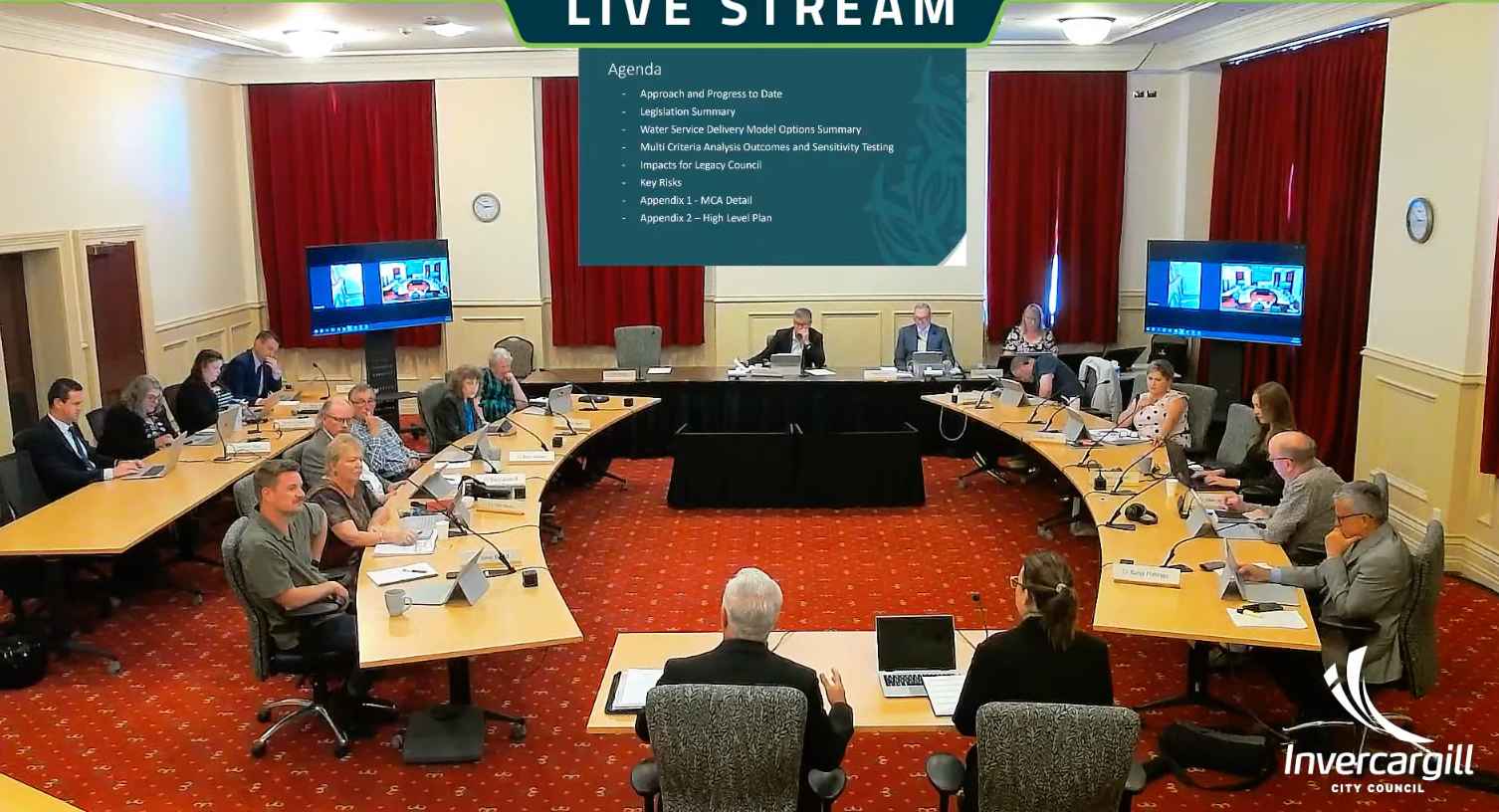The Invercargill City Council would prefer to keep its future water services delivery in house under Local Water Done Well, but will consult on three options under legislative requirements.
The Infrastructure and Projects committee met for over three hours on Tuesday to work through the options, and was one of three councils in the south still not yet committed to the collaboration model - initially proposed by Gore and Central Otago Mayors.
Related:
Invercargill Mayor Challenges Government On Waste Policy
90 Seconds+ with City Councillor Grant Dermody
Marlon Bridge from the Department of Internal Affairs was also at council to give his perspective, as he travelled around the country meeting with each local government sector.
He told the committee that some councils were working in isolation, but there were many grouping together and forming regional entities or Council-Controlled Organisations (CCO).
He commended ICC on doing a great job with its water services over a long period of time, and said he could see Invercargill’s dilemma in not working with others, “but also lost opportunities in not.”
Deputy Mayor Tom Campbell said Southland had a long history of working together, but said the issue going forward was the steep increases in rates of up to $700/year.
Marlon said there were some councils that were facing over $1000 per annum rates, “but it brings huge benefits…. in creating a CCO you can make it as cheap or as expensive as you want. But you can set them up very cheaply, and in Invercargill you don’t have to reinvent the wheel,” he said.
Mayor Nobby Clark said he understood that the directors of the CCO would be accountable to the water entity but not to ratepayers. But Marlon said having directors gave better transparency to those services and could actually save ratepayers money if costs were too high.
The new Local Water Done Well legislation would come into effect in July 2025 and once the options were passed through council next week, they would then go out to ratepayers for consultation.
Mayor Clark said it was still a big risk for Invercargill to “get into bed” with a Southland/Otago CCO, especially those other councils that had greater need such as Central Otago with its growth and Dunedin with climate change.
“There will be challenges in the next five years keeping rates the same by yourself,” Marlon said.
An in-house business unit with structural change would only cost $330,000 a year, compared with an Invercargill City Council CCO that would cost $3.9 million to set up and $4.7 million a year to run.
The third option of an Otago/Southland Water Services Entity (with harmonised pricing pushed out five years), was even more expensive - $50.6 million to set up and $27 million a year to run.
The committee agreed on the first option and agreed to consult on all three, with the third option amended so that council could do further work on deferring harmonised pricing.
This was separate to the collaboration model proposed by Gore and Central Otago Mayors, that were working on a fully harmonised pricing model.
The Local Government (Water Services) Bill ("Bill 3") was also introduced to Parliament on December 10, and the ICC Project Team was currently reviewing that and preparing a submission.


